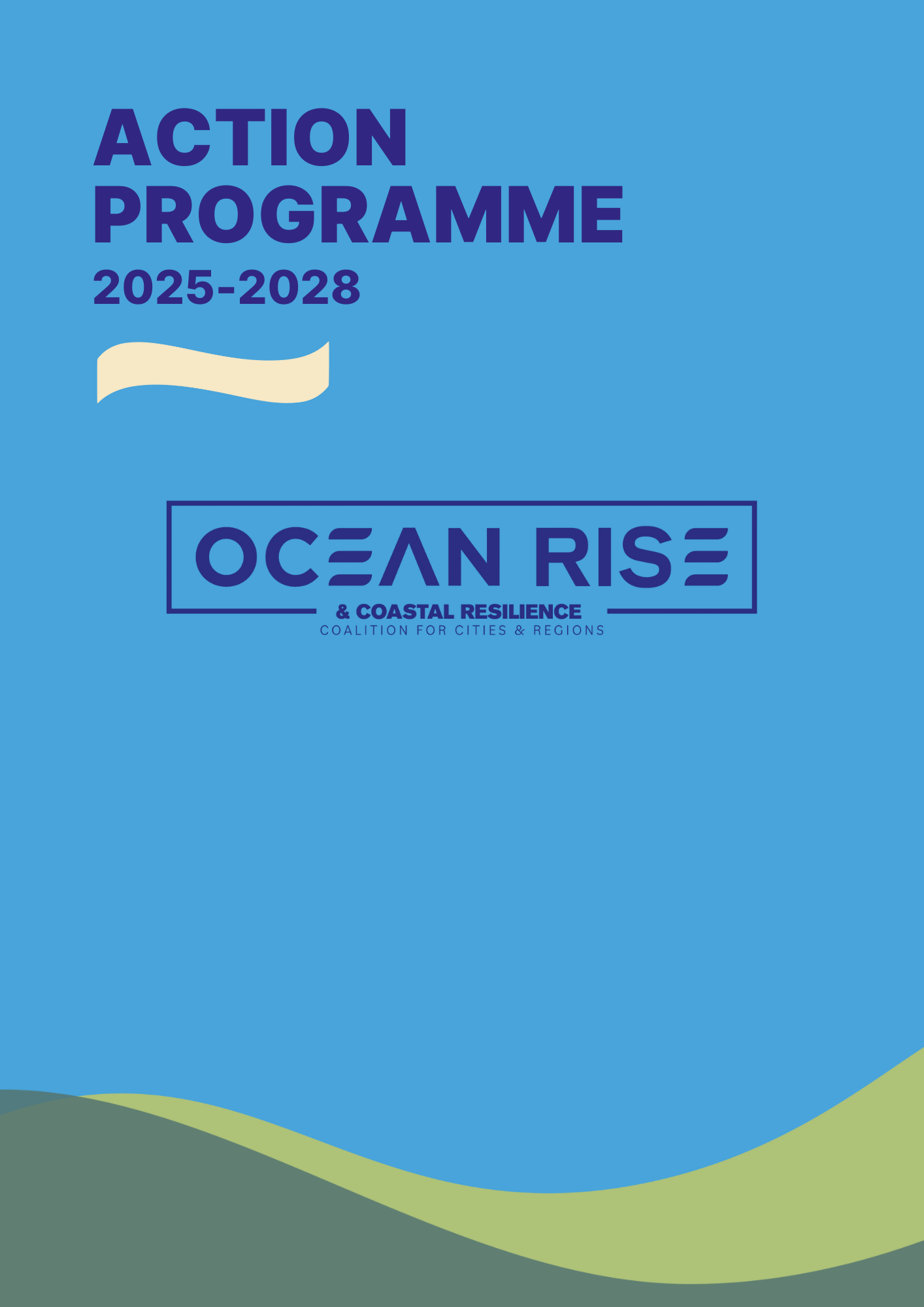Our activities
The Coalition supports and works toward the adaptation and resilience of coastal cities and regions by fostering cooperation, promoting knowledge sharing, and providing strategic support around five Pillars.

Mobilisation
Organisation of regular meetings between local officials and stakeholders to encourage the exchange of knowledge and best practices.
Some actions planned between 2025 and 2028:
- Establish a high-level summit to elevate the advocacy of coastal local governments, ensuring their priorities on urban transformation, ocean conservation, climate action, and biodiversity preservation are integrated into the international agenda, including the triannual UN Ocean Conference (UNOC).
- Develop the website of the Coalition as a digital platform providing useful resources for leading coastal adaptation efforts. The website will act as a repository for 1) disseminated knowledge, best practices and case studies; and 2) share vulnerability assessment, data-sharing and policy-decision tools.
- Inform and communicate about the Coalition Members on a regular basis to share publications and up-coming activity agenda, as well as highlight innovative projects and solutions.
Knowledge
Strengthening cooperation between scientific institutions and coastal local governments to improve the production, access, use, and dissemination of data and knowledge.
Some actions planned between 2025 and 2028:
- Conduct the synthesis and knowledge dissemination of complex scientific findings and analysis ensure the uptake of knowledge and science on coastal adaptation by decision-makers.
- Host workshops for coastal local governments to gather and enhance data-sharing and policy-decision tools answering their specific needs and promote the best uses of scientific data services.
- Support the development of an AI-powered, user-friendly platform capable of delivering query-based, relevant information to empower data-driven decision-making for coastal resilience.
- Support and emphasise the importance of Ocean Literacy to raise awareness among all stakeholders involved and the general public to ensure acceptance and informed engagement of societies.
- Contribute to the advocacy efforts, ensuring they are grounded in robust and credible scientific knowledge.
Capacity Building
Developing the skills of local governments through training, exchanges, and peer-to-peer and expert partnership programs.
Some actions planned between 2025 and 2028:
- Enable coastal local governments to present their challenges, showcase innovative responses, and engage with experts for direct feedback. These workshops will provide access to:
- Specialized expertise for port cities and regions, ensuring tailored solutions to their unique challenges.
- Scientifically validated initiatives proposed by the private sector, offering innovative and practical approaches to enhance coastal resilience.
- Facilitate peer-to-peer exchange of practices and returns of experiences between local governments through both virtual exchanges and in-person visits:
- Virtual exchange enabling local governments to share experiences and solutions.
- In-person exchange visits where city officials and stakeholders can learn directly from peers who have successfully implemented innovative solutions to similar challenges.
Financing
Mobilising public and private financial actors to design, implement, and provide funding mechanisms tailored to coastal zone adaptation.
Some actions planned between 2025 and 2028:
- Support the creation of national project funding calls dedicated to coastal local governments.
- Support and assist in the creation of a dedicated fund allowing national governments to finance local community adaptation, including Official Development Assistance (ODA).
- Lead an effort to institutionalise a dialogue bringing together States, local governments, and financial experts, including multilateral, bilateral, national, and subnational development banks as well as financing institutions, philanthropies and the private sector, to establish common priorities and develop shared roadmaps for funding adaptation and resilience measures.
- Conduct the review of funding mechanisms dedicated to financing adaptation and resilience efforts for coastal cities and regions; promote and showcase financial initiatives at forums and events, encouraging the adoption of the most effective models and practices.
Advocacy
Supporting and amplifying the voice of coastal local governments to ensure their priorities and the well-being of their citizens are taken into account in international negotiations and public policies.
The main advocacy priorities are:
- Promote a sustainable vision of coastal adaptation and resilience
- Advocate for greater use of knowledge by local authorities, citizen science engagement, and ocean education
- Strengthen public and private investment in adaptation and resilience initiatives
- Improve local governance to better respond to risks and vulnerabilities and implement appropriate measures
The Coalition ensures that national governments integrate coastal resilience measures into their climate and biodiversity strategies, including Nationally Determined Contributions (NDCs), National Adaptation Plans (NAPs), and National Biodiversity Strategies and Action Plans (NBSAPs), while ensuring effective coordination between these frameworks.
Some actions planned between 2025 and 2028:
- UN Framework Convention on Climate Change (UNFCCC)
- Advocate for a better integration of coastal resilience across mechanisms and bodies, through key entry points including the following:
- National climate strategies and planning, including NDCs and NAPs;
- The Global Goal on Adaptation and Loss & Damage;
- the Ocean and Climate Change Dialogue and the Just Transition Work Program, and the Nairobi Work Program Expert Group on Ocean;
- Non-state actors’ campaign and initiatives, including Race to Resilience and Race to Zero, and their respective agenda the Sharm-el Sheikh Adaptation Agenda and 2030 Breakthroughs.
- Convention on Biological Diversity (CBD)
- Ensure effective implementation of the Global Biodiversity Framework targets relevant for coastal resilience (T1 on Spatial Planning, T8 on Climate Action, T11 on Nature-based Solutions and T12 Urban Planning), mobilising key levers:
- NBSAPs and national targets;
- Programme of work on marine and coastal biodiversity, currently under revision;
- Indicators under the Global Biodiversity Framework’s monitoring framework.
- SDG Agenda
- Generate significant political momentum and highlighting the importance of coastal cities and regions adaptation and resilience during the Ocean Rise & Coastal Resilience Summit, in parallel to the UNOC and in a dedicated segment for local and regional governments at the UN Water Conference.
- Intergovernmental Panel on Climate Change (IPCC) and Intergovernmental Panel on Biodiversity and Ecosystem Services (IPBES)
- Advocate for a comprehensive analysis of ocean changes impacts and local governments adaptation measures to be included in the IPCC’s Special Report on Cities and Climate Change and IPBES reports.
